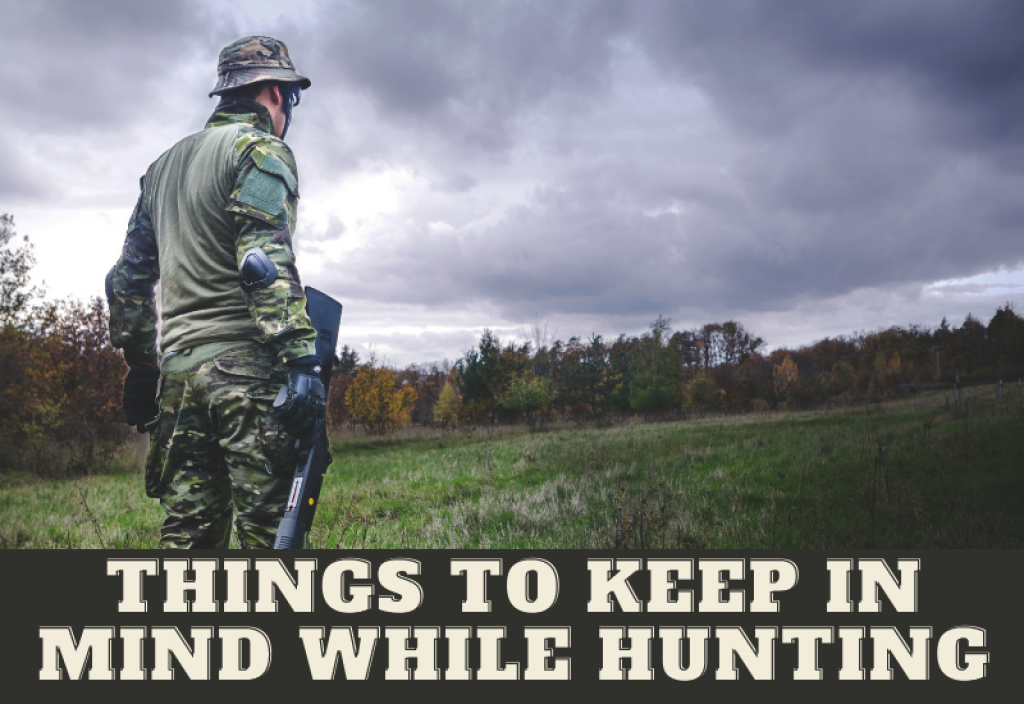
Hunting has been around since the beginning of time, and over 15 million Americans take part in it. Some individuals hunt for sport, while others hunt to support their families and save food for the winter. Whatever the reason, if you are just getting started, you will want to know a few things. Continue reading to discover the best hunting for beginners’ tips that can help get you started!
Experienced hunters have two outstanding qualities: the skill to use weapons and the ability to be patient while hunting. Hunters who are new to the game will require a great deal of training and skill. What is the reason behind this? Because hunting requires the use of a firearm, and you can’t go into the woods without following safe firearm practices, you’ll need proper training before using one. The following are three common mistakes made by hunters:
See also:
- Amazing Tips for Bow Hunting | The Ultimate Guide for Beginners
- Must Have Rifle Accessories for Hunting and Benefits
- Mistaking a human for a game. It may seem impossible to slip a person for a four-legged target, but it does happen. To avoid a hunting accident, pay attention to the shape of your target and beyond when hunting. An overabundance of enthusiasm may be costly.
- Prepare yourself; big-game hunting requires it. Being inexperienced may be dangerous not just to yourself, but also to others around you.
- Mechanical failures might occur with your rifle, and this is when practice and safety standards come into effect. You must know how to deal with a jammed rifle, slam fire, or rim lock as a hunter. Stay at home if you don’t understand these concepts.
Primary Firearm Safety While Hunting
- Muzzle Direction: Always aim your firearm toward your chosen target. Misdirection is a definite technique to hit an unsuspecting bystander or the wrong game. As a hunter, safe gun control should be second nature to you.
- Unloaded weapon: Even if a firearm is not loaded, you should always consider it to be loaded.
- The trigger should not be used as a resting spot for your fingers. When carrying a weapon, keep your fingertips off the trigger guard. This is a common error made by inexperienced hunters; master it before heading out into the field.
See also:
6 Important Considerations to Keep in Mind While Hunting
Before registering for a hunting license, most states require hunters to undergo a basic hunting course as well as gun safety classes. Even if you’ve gone hunting before, taking a safety class will expand your knowledge and better prepare you for the hunt. That being stated, here are a few things to think about before you enter the field:
1. Firearm Safety
According to the National Shooting Sports Foundation, you are considerably less likely to be killed from a firearm than from choking on food or driving, and firearms accounted for only 0.3 percent of unintentional fatalities.
Firearms, on the other hand, must be handled with great caution. If you are afraid of guns, observe the rules of firearm safety and be aware of your target and surroundings at all times.
Wear a bright and colorful jacket or vest when hunting (typically available in blaze orange and pink) to guarantee that other hunters notice you.
If you’re new to hunting, go to a shooting range and get some training done before going out into the woods.
2. The wind
The wind might be your greatest opponent while hunting, much to the enjoyment of your prey. Expert hunters have learned to pay attention to the speed and direction of the wind when hunting since it can pick up your scent and guide it to your game.
3. Scent control
Overindulging in scent control might have the opposite effect of what it is intended for, similar to drenching your outfit in a bottle of cologne before a date.
You may draw your game as near to you as possible for a decent shot by using a few drops of smell control during your hunt. An excess of smell control can convey warning signals to your game within a half-mile radius. As a general rule of thumb, use it sparingly.
4. Gear Up
A rifle is only one of the requirements for hunting; hunters must also bring additional items in their hunting backpacks.
A hunting tree stand may provide an eye view of the whole area for deer hunters. However, don’t fall asleep in your tree stand; instead, be alert and attentive to your game.
It is not enough to own a tree stand; you must also learn how to operate it. Tree stands diminish the aroma of the ground, making it easier for animals to detect.
Other items to consider are a hunting GPS, hunting crossbows, hunting binoculars, survival slingshots, and more. All of these items must be put in your backpack before you depart.
See also:
5. Patience
Hunting requires a lot of patience. Even if you are walking in the woods, you should proceed with caution since you never know what is around the corner. Some deer hunters may go out every day for a week and yet not get a shot. However, the ideal chance will show itself when you least expect it.
6. Stay Quiet
Hunting requires a great deal of stealth movement. Going into the outdoors with a mobile device is a definite method to scare off the prey. This also applies to your clothing and conduct when out in the wilderness.
Avoid wearing waterproof apparel that tickles like paper. The plush fleece material is frequently quieter and should be your hunting clothing of choice. It enables you to stretch and move slowly while being silent.
Final Thoughts:
Going into a hunt with the right mindset can be just as important as going into a hunt in good physical condition. Whatever tag is in your pocket this fall, using the little tricks listed above may help make your hunt successful.
See also:
